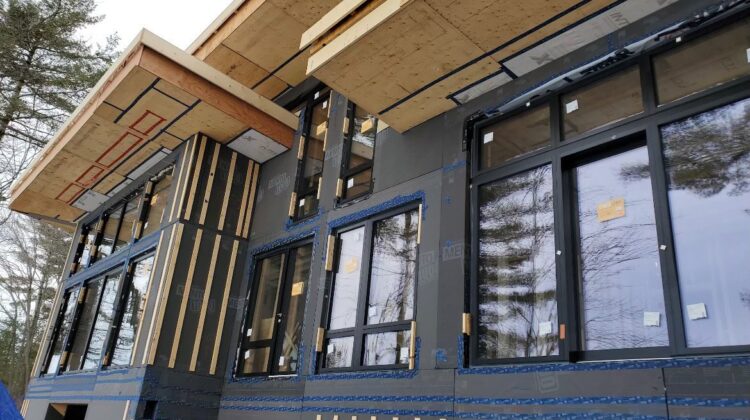
Construction is responsible for about 40% of CO2 emissions globally, according to data from the United Nations.
And once a house is built, heating and cooling account one’s home in Canada can account for up to two-thirds of utility costs.
If Canada ever wants achieve its stated net-zero goals, addressing the hefty climate footprint of construction—an inevitable byproduct of human civilization—is likely necessary.
An Ontario company is developing ecologically friendly building technology that not only reduces utility costs through energy efficiency, but also reduces the emissions of the building process itself.
Founded in 2018 in Baysville, Tooketree Passive Homes is in the business of creating residential homes with the smallest carbon footprint possible.
Established by daughter and son Melinda and Rick Zytaruk, Tooketree aims to go beyond traditional energy efficiency methods by using materials that are more environmentally friendly—combined with a building process that demands less carbon emitting.
“Many conventional building materials are doing more harm than good,” the founders argue, pointing out how popular insulation options are often petroleum-based. Even those marketed as natural, such as mineral wool, are typically products of energy-intensive manufacturing processes.
You can build an efficient home with these products, the company acknowledges, “but no future energy savings will ever make up for the emissions created in the manufacturing and construction processes or the pollution that results from the eventual disposal of these materials.”
Tooketree’s flagship panels are manufactured with wood and responsible insulation products like blown-in cellulose made from recycled newspaper and recycled fibreboard.
The benefits of these materials go beyond diverting the landfill, Tooketree posits. For example, paper cellulose and wood are plant-based materials, originally born from photosynthesis, nature’s own system for capturing atmospheric carbon and storing it in matter.
“When we find ways to store and preserve carbon-rich plant matter, in the walls, floors and roofs of our homes for instance, instead of allowing it to decompose in a landfill, we prevent carbon from re-entering the atmosphere,” the company states online. “We limit the creation of waste and unnecessary energy consumption through our controlled manufacturing process.”
Tooketree offers panels for flooring, roofing, and walls for its prefab homes, which are manufactured locally in Ontario.
The upstart was recently recognized by Foresight Canada in the 2024 Foresight 50 list, an annual ranking of the nation’s rising clean technology firms.


